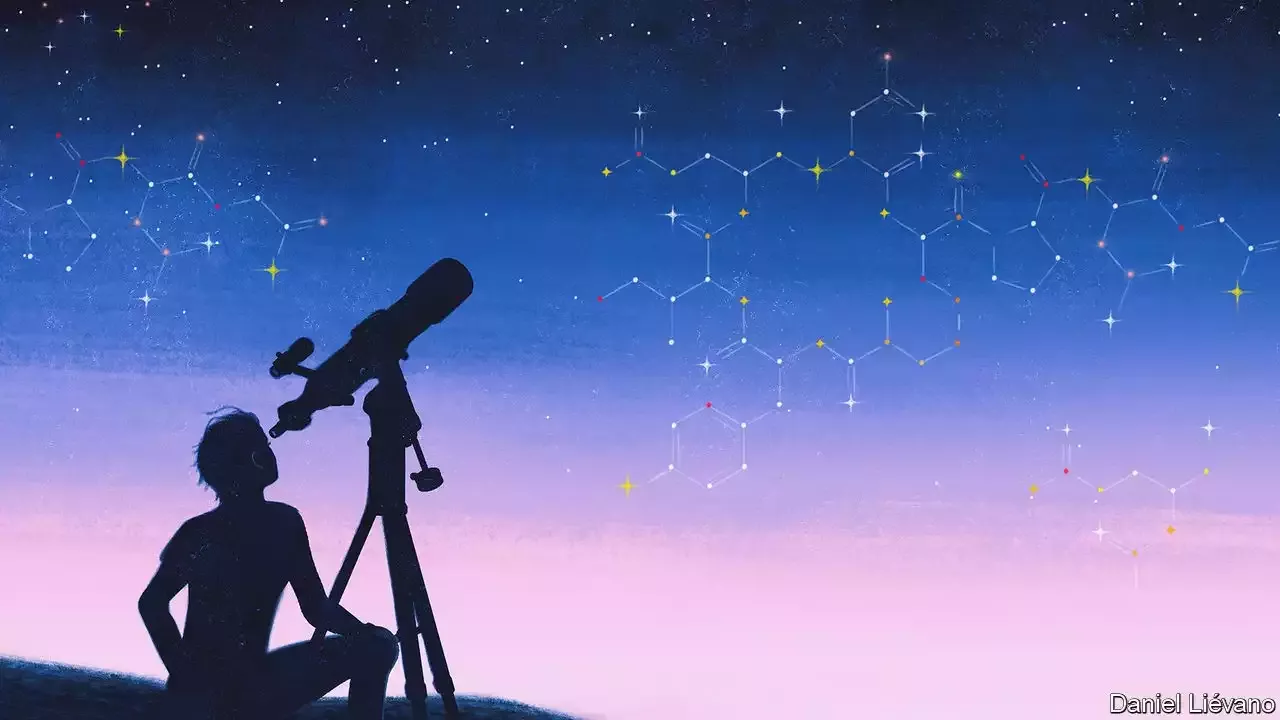For decades, astronomers searching for life beyond humanity’s home planet have had a simple strategy: follow the water. But there’s a problem with this approach
Save time by listening to our audio articles as you multitaskThe next step has been to look for biosignatures—molecules which might betray the existence of biological processes. These could include oxygen or methane in a planet’s atmosphere. On Earth, those molecules persist only because living things constantly regenerate them.
Alien life might, though, have its roots in something yet more exotic. In the laboratory, metal oxides known as polyoxymetalates have shown some remarkably lifelike abilities, such as being able to form membranes and being able to assemble, with some chemical help, into complex structures reminiscent ofWhatever its building blocks, though, life will need a solvent in which to function. On Earth, that solvent is water.
Perhaps the most promising general-purpose alternative to water is formamide, a colourless organic liquid composed of carbon, hydrogen, oxygen and nitrogen that can dissolve many of the same chemicals as water—including proteins and. It can also stay liquid at up to 210°C, making possible a large range of chemical reactions on planets with more extreme surface temperatures than Earth’s.
Identifying exotic life forms made from different materials is thus a matter of widening the search from Earthly biosignatures—oxygen, methane and so on—to include chemicals that might be made by various imagined biochemical systems. One tool for this search is the mass spectrometer, a device that ionises samples and then filters those ions by mass.Mass spectrometers have been the eyes and ears of decades of space exploration, said Luoth Chou, an astrobiologist at Georgetown University.
United Kingdom Latest News, United Kingdom Headlines
Similar News:You can also read news stories similar to this one that we have collected from other news sources.
 Five major nature recovery schemes announced across EnglandThe projects aim to manage land sustainably and improve access to nature for those in cities.
Five major nature recovery schemes announced across EnglandThe projects aim to manage land sustainably and improve access to nature for those in cities.
Read more »
 Prof Brian Cox says lifeforms like us 'may be extremely rare’Prof Cox said it was “one of the great mysteries” whether intelligent alien life forms had found their way to Earth
Prof Brian Cox says lifeforms like us 'may be extremely rare’Prof Cox said it was “one of the great mysteries” whether intelligent alien life forms had found their way to Earth
Read more »
 Work begins to turn 99,000 hectares in England into ‘nature recovery’ projectsFive projects to receive funding from Defra and Natural England to tackle wildlife loss and improve access to nature
Work begins to turn 99,000 hectares in England into ‘nature recovery’ projectsFive projects to receive funding from Defra and Natural England to tackle wildlife loss and improve access to nature
Read more »
 Work begins to turn 99,000 hectares in England into ‘nature recovery’ projectsFive projects to receive funding from Defra and Natural England to tackle wildlife loss and improve access to nature
Work begins to turn 99,000 hectares in England into ‘nature recovery’ projectsFive projects to receive funding from Defra and Natural England to tackle wildlife loss and improve access to nature
Read more »
 Is a ‘budget’ electric car practical if you drive long distances? I put it to the testHas the public charging infrastructure improved enough to support a high mileage life in a budget EV? An expert finds out
Is a ‘budget’ electric car practical if you drive long distances? I put it to the testHas the public charging infrastructure improved enough to support a high mileage life in a budget EV? An expert finds out
Read more »
